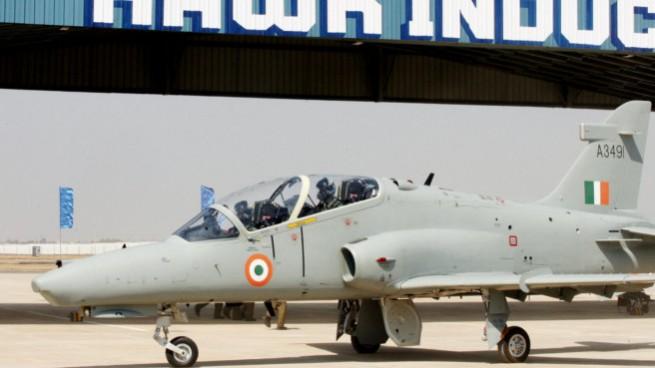
Controller General of Defence Accounts (CGDA) in its latest audit claims that budding pilots of the Indian Air Force (IAF) and the Indian Navy are receiving training on planes fitted with sub-standard engines and second-hand components which seriously affects the quality of the aircraft, reports Hindustan Times.
The aircraft in question is the Hawk advanced jet trainer manufactured by the British company BAE Systems. A total of 123 − 106 for the IAF and 17 for the Navy − were acquired in three batches starting 2004 to replace the ageing and obsolete Kiran and Iskra intermediate jet trainers.
Out of the 123 jets, 95 were assembled by public sector Hindustan Aeronautics Limited (HAL) while the remaining were bought in flyaway condition in the $2 billion deal. The engines for these planes were manufactured by HAL under a transfer of technology deal with Rolls Royce, the original equipment manufacturer (OEM).
CGDA in its audit report, which was prepared in 2016, has pointed fingers at the planes manufactured in the country. It also says that a middleman who was paid a commission of around Rs 500 crore was involved in the deal even though India has banned using the services of such agents.
The audit report notes that it is clear that the linkage between commission paid and comprises made in the quality of engines has severely affected the overall quality of the aircraft.
After the allegation that commission was paid in the deal surfaced in the British media, the Central Bureau of Investigation started investigation which is ongoing.
The audit report also says that IAF, HAL and Directorate General of Quality Assurance (DGQA), an independent body which checks the quality of equipment, have overlooked the lapses.
The report says that according to the contract, the engines could be used for 2,000 hours before they needed an overhaul but in reality, the engines needed overhauling after just 1,000 hours.
To cover up the issue, the report alleges HAL, IAF and DGQA in a statement said that the life of the engine was not 2,000 hours but 1,400 hours and when it completed that much time in the air, a special inspection was carried out to find if it could operate for more 600 hours.
However, IAF and Ministry of Defence officials on condition of anonymity have questioned the audit report calling it not true.
The MoD official told Hindustan Times that there was no issue with the quality of the engines which were manufactured by HAL after transfer of technology from the OEM.
The IAF officer said an engine is serviced at intervals of 500 hours under the supervision of OEM till it reaches 2,000 hours when it is overhauled.
Engines manufactured by HAL are inspected after they have flown for 1,400 hours for three components and all engines have a Time-Between Overhaul (TBO) of 2,000 hours the officer added, refuting charges of inferior engines being used.
He also pointed out that every component which goes into an aircraft passes a rigorous test and a sub-standard component can't pass these tests.
Regarding "Category B" or second-hand components being fitted to aircraft, another MoD official said such equipment are removed from a serviceable aircraft and used on a similar aircraft with certified residual life.

















